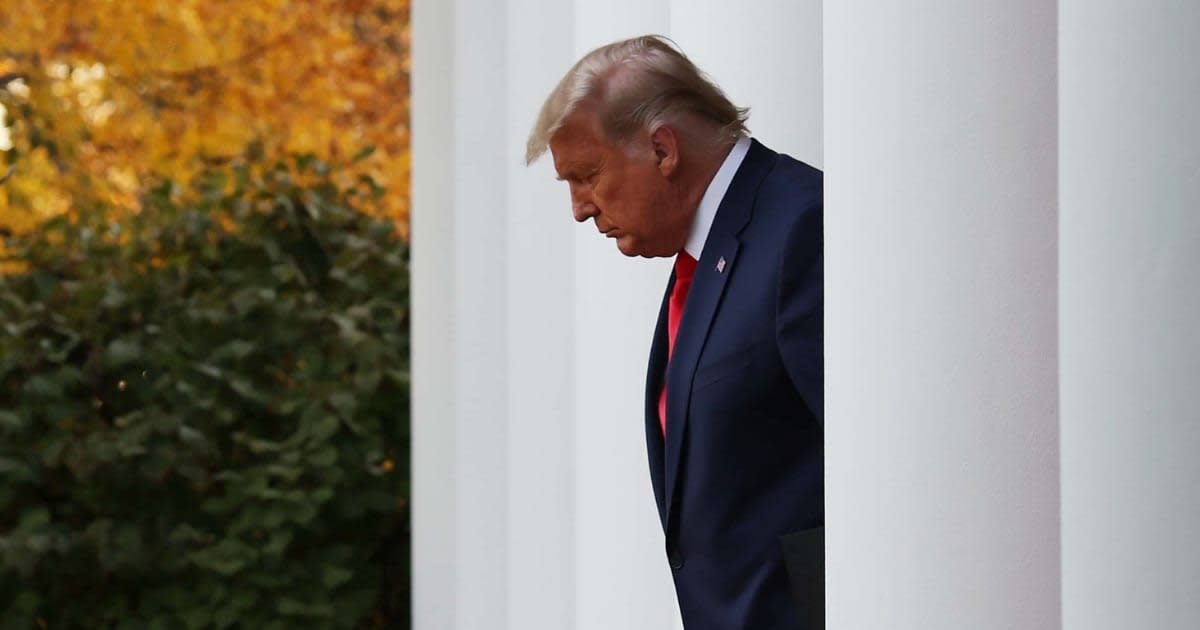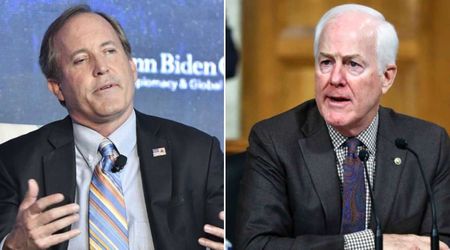Here's Donald Trump's status on running for president and voting after hush money conviction

MANHATTAN, NEW YORK: Former President Donald Trump's Manhattan hush money trial resulted in a significant legal and political development as a unanimous jury found the 77-year-old guilty on all 34 counts of falsifying business records.
The charges stemmed from an alleged effort to conceal a hush money payment to adult film star Stormy Daniels before the 2016 presidential election, according to Politifact.
View this post on Instagram
Despite this conviction, Trump remains eligible to run for president. The sentencing is scheduled for July 11, just days before the Republican National Convention in Milwaukee, where the MAGA strongman is expected to be formally nominated as the party’s presidential candidate.
This trial is the first of four for Trump, and he reportedly expects to appeal Thursday’s verdict moving forward.
View this post on Instagram
The jury's deliberation lasted approximately ten hours over two days. Given the legal delays in other cases, this trial may be the only one to conclude before the upcoming election.
Trump reiterated his claims that the process was "rigged" and vowed to "fight to the end" in a few brief statements delivered at the courthouse after the verdict.
View this post on Instagram
His complaints about the prosecution's political motivations and the fact that it was taking place in New York City — a city that voted for President Joe Biden by a substantial margin in 2020 — have been consistent throughout.
When will the sentencing take place?
The trial was presided over by Judge Juan Merchan, who will supervise the sentencing on July 11 at the Manhattan criminal courthouse.
What would happen if the guilty verdict is appealed?
Former President Donald Trump would probably pursue an appeal now that he has been convicted. In that case, the appeal process is expected to extend beyond Election Day.
Trump has thirty days to formally and in writing announce that he plans to appeal the decision.
View this post on Instagram
Subsequently, he would have several months to submit the actual appeal, according to Karen Friedman Agnifilo, a criminal defense attorney and former executive chief of the trial division and chief assistant district attorney at the Manhattan District Attorney's office.
Following the filing of the appeal, it would take additional months before the appeals court hears oral arguments, and potentially several more months before a decision is reached.
Legal experts have indicated that the entire process could span a year or longer, and such a timeline would not be unprecedented.
Are there chances for Donald Trump to end up in prison?
According to Norman L Eisen, legal counsel during Donald Trump's initial impeachment and trial, data shows that within Manhattan District Attorney Alvin Bragg’s inaugural year, his team independently brought forth 166 felony charges for the falsification of business records against 34 individuals or entities.
It was determined that roughly 10% of cases where the primary accusation was first-degree falsification of business records resulted in some form of imprisonment.
View this post on Instagram
However, Eisen advised that the presence of additional charges may have influenced the sentencing outcomes in prior cases.
The potential sentencing verdict in the Manhattan case remains uncertain. Trump's lack of prior convictions and the nonviolent nature of the charges may work in his favor, as noted by legal experts.
Conversely, Trump's repeated contempt citations for violating a gag order may count against him.
Will the Secret Service accompany former President Trump to prison?
The Secret Service, responsible for the security of former presidents, has been making preparations for the potential scenario of Donald Trump's imprisonment due to violations of a gag order or following a conviction, as reported by The New York Times, CBS, and ABC.
“For all settings around the world, the US. Secret Service studies locations and develops comprehensive and layered protective models that incorporate state of the art technology, protective intelligence and advanced security tactics to safeguard those we protect,” Special Agent Joe Routh said prior to the verdict, adding. “In order to maintain operational security, we do not comment on specific protective operations.”
Can President Biden pardon Trump?
Due to former President Donald Trump's conviction on state charges, President Joe Biden is unable to pardon him, as presidential pardons apply only to federal charges, as explained by Michigan State University law professor Brian Kalt.
While it is theoretically possible for New York Governor Kathy Hochul to pardon Trump, the likelihood of this occurring is considered low due to her Democratic affiliation.
View this post on Instagram
Additionally, if Trump were to regain the presidency, he would be unable to pardon himself for the same reason that Biden cannot.
Legal experts also note the uncertainty surrounding a president's ability to pardon themselves for a federal crime.
Can Donald Trump still run for president even though he’s a convicted felon?
The US Constitution permits individuals to run for president, emphasizing the principle that voters determine their representatives.
The qualifications for the presidency are constrained to natural-born citizenship, a minimum age of 35 by Inauguration Day, and residency in the United States for at least 14 years.
View this post on Instagram
Historical instances indicate that convicted felons have pursued presidential candidacy. For instance, Lyndon LaRouche, convicted of tax and mail fraud conspiracy in 1988, ran for president multiple times between 1976 and 2004.
Similarly, Eugene Debs, convicted of violating the Espionage Act of 1917, ran for president under the Socialist Party banner from a federal prison in Alabama in 1920 after delivering an anti-war speech.
Is Trump set to lose his voting rights?
Based on current laws, it is improbable that Donald Trump will lose his voting rights. As a registered voter in Palm Beach County, Florida, Trump is subject to the regulations outlined by the Florida Department of State.
According to the department, individuals with “a felony conviction in another state makes a person ineligible to vote in Florida only if the conviction would make the person ineligible to vote in the state where the person was convicted.”
View this post on Instagram
Moreover, a recent law in New York, effective as of 2021, reinstates voting rights for individuals convicted of felonies upon their release from prison.
It is important to note that individuals serving prison sentences for felony convictions are the only ones who lose their right to vote, while those with stayed prison sentences pending appeal retain their voting rights.
What’s going to be the likely outcome of the other criminal cases against Trump?
It's unlikely that criminal proceedings will be initiated against former President Donald Trump before Election Day.
The federal election interference case has been put on hold due to Trump's claim of presidential immunity. The Supreme Court is expected to make a ruling on this issue by early July.
View this post on Instagram
It's also important to note that the Supreme Court's decision will likely not affect the New York case, as a significant part of the alleged misconduct occurred before Trump became POTUS.
The trial for the federal classified documents, originally set to start in Florida in May, has been delayed by the presiding judge while awaiting decisions on pending legal motions, and no new date has been scheduled.
Furthermore, the decision of an appeals court in Georgia on May 8 to reconsider a lower court ruling, which would allow Fulton County District Attorney Fani Willis to proceed with the prosecution of Trump, reduces the chances of the case going to trial before November.










